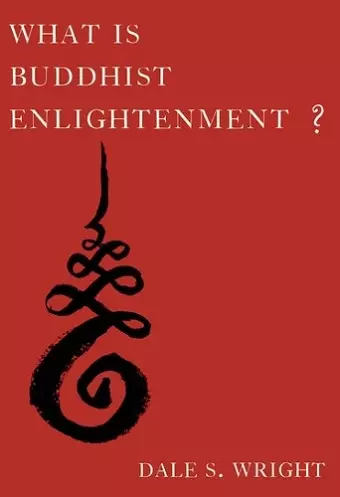What Is Buddhist Enlightenment?
Format:Hardback
Publisher:Oxford University Press Inc
Published:3rd Nov '16
Currently unavailable, and unfortunately no date known when it will be back
This hardback is available in another edition too:
- Paperback£21.99(9780197675410)

What kind of person should I strive to be? What ideals should I pursue in my life? What would it mean for all of us to wake up to the realities and possibilities for human life? These questions, or versions of them, are commonly thought of as the essential building blocks of the human condition, and often serve as running motifs throughout our lives. Dale S. Wright argues that the question at the heart of them all is one most commonly associated with Buddhism: what is enlightenment? Any serious practitioner of human life, Buddhist or not, confronts the challenge of how to reach a different, improved--or enlightened--state of being, and fundamental to that quest is grappling with what enlightenment actually means. Why then, Wright asks, is this question not only avoided, but discouraged among Buddhists? There are many reasons for this unspoken prohibition. The simplest and perhaps most important is that pondering a distant goal is a waste of energy that would be much better applied to practice: quiet the flow of obsessive thinking, put yourself in a mindful state of presence, and let enlightenment take care of itself. However, the point of Buddhist practice is that it might eventuate in some form of awakening; in some groundbreaking transformation; in enlightenment. Wright contends that understanding the nature of the enlightenment that one seeks is the most important task of all, and that it can and should be in line with practice. Once practice is underway, he says, there should be an ongoing meditation on the ideal that is being strived for. Wright here offers a wide--ranging exploration of issues that have a bearing on the contemporary meaning of enlightenment. While taking as his point of departure an examination of what enlightenment has been in past Buddhist traditions, his historical considerations are subordinate to the question that our lives press upon us--what kinds of lives should we aspire to live here, now, and into the future?
What is Buddhist Enlightenment? offers a wide-ranging exploration of issues that have a bearing on the contemporary meaning of enlightenment... [T]he book balances deep learning and an accessible style, offering valuable insights for students, scholars, and practitioners alike. * Lixia Dong, Reading Religion *
How should we understand enlightenment today? For Buddhism, no question is more important, and Dale Wright's insightful responses are exactly what contemporary Buddhists need to think about—if Buddhism is to become what our globalizing world needs. * David R. Loy, author of A New Buddhist Path *
Dale Wright's What is Buddhist Enlightenment? is a deeply humane book, rich with timely and profound reflections on what it might look like to aspire to the fully realized life of someone somehow 'enlightened.' Wright eloquently thinks along with the Buddhist tradition about an idea (enlightenment) that's central...to the modern West, yielding insights into what the Buddhist tradition might have to teach us, right here at the historical moment where we find ourselves, about how to be human. * Dan Arnold, University of Chicago Divinity School *
Dale Wright takes on the daunting task of clarifying Buddhist enlightenment, and he skillfully does so in relation to karma, the bodhisattva ideal, meditative reading, and other facets of Buddhism. His critical exploration of Zen enlightenment in relation to morality and language is especially illuminating and will serve as a needed corrective to popular misconceptions. And his ten theses on contemporary enlightenment provide a rich foundation for developing and practicing enlightenment in this historical moment. * Christopher Ives, author of Imperial-Way Zen: Ichikawa Hakugen's Critique and Lingering Questions for Buddhist Ethics *
A relevant and informative supplement to the Western practitioner's journey of development. * Sam Mowe, Tricycle *
ISBN: 9780190622596
Dimensions: 236mm x 155mm x 25mm
Weight: 476g
256 pages